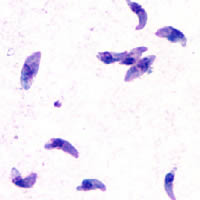
Photo from wikipedia
The global increase in resorting to artificial nutritional formulas replacing breastfeeding has been identified among the complex causes of the obesity epidemic in infants and children. One of the factors… Click to show full abstract
The global increase in resorting to artificial nutritional formulas replacing breastfeeding has been identified among the complex causes of the obesity epidemic in infants and children. One of the factors recently recognized to influence metabolism and weight gain is kynurenic acid (KYNA), an agonist of G protein-coupled receptor (GPR35). Therefore the aim of the study was to determine the concentration of KYNA in artificial nutritional formulas in comparison with its level in human breast milk and to evaluate developmental changes in rats exposed to KYNA enriched diet during the time of breastfeeding. KYNA levels were measured in milk samples from 25 heathy breast-feeding women during the first six months after labor and were compared with 21 time-adjusted nutritional formulas. Animal experiments were performed on male Wistar rats. KYNA was administered in drinking water. The content of KYNA in human milk increases more than 13 times during the time of breastfeeding while its level is significantly lower in artificial formulas. KYNA was detected in breast milk of rats and it was found that the supplementation of rat maternal diet with KYNA in drinking water results in its increase in maternal milk. By means of the immunoblotting technique, GPR35 was evidenced in the mucosa of the jejunum of 1-day-old rats and distinct morphological changes in the jejunum of 21-day-old rats fed by mothers exposed to water supplemented with KYNA were found. A significant reduction of body weight gain of rats postnatally exposed to KYNA supplementation without changes in total body surface and bone mineral density was observed. The rat offspring fed with breast milk with artificially enhanced KYNA content demonstrated a lower mass gain during the first 21 days of life, which indicates that KYNA may act as an anti-obesogen. Further studies are, therefore, warranted to investigate the mechanisms regulating KYNA secretion via breast milk, as well as the influence of breast milk KYNA on mass gain. In the context of lifelong obesity observed worldwide in children fed artificially, our results imply that insufficient amount of KYNA in baby formulas could be considered as one of the factors associated with increased mass gain.
Journal Title: Scientific Reports
Year Published: 2019
Link to full text (if available)
Share on Social Media: Sign Up to like & get
recommendations!